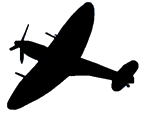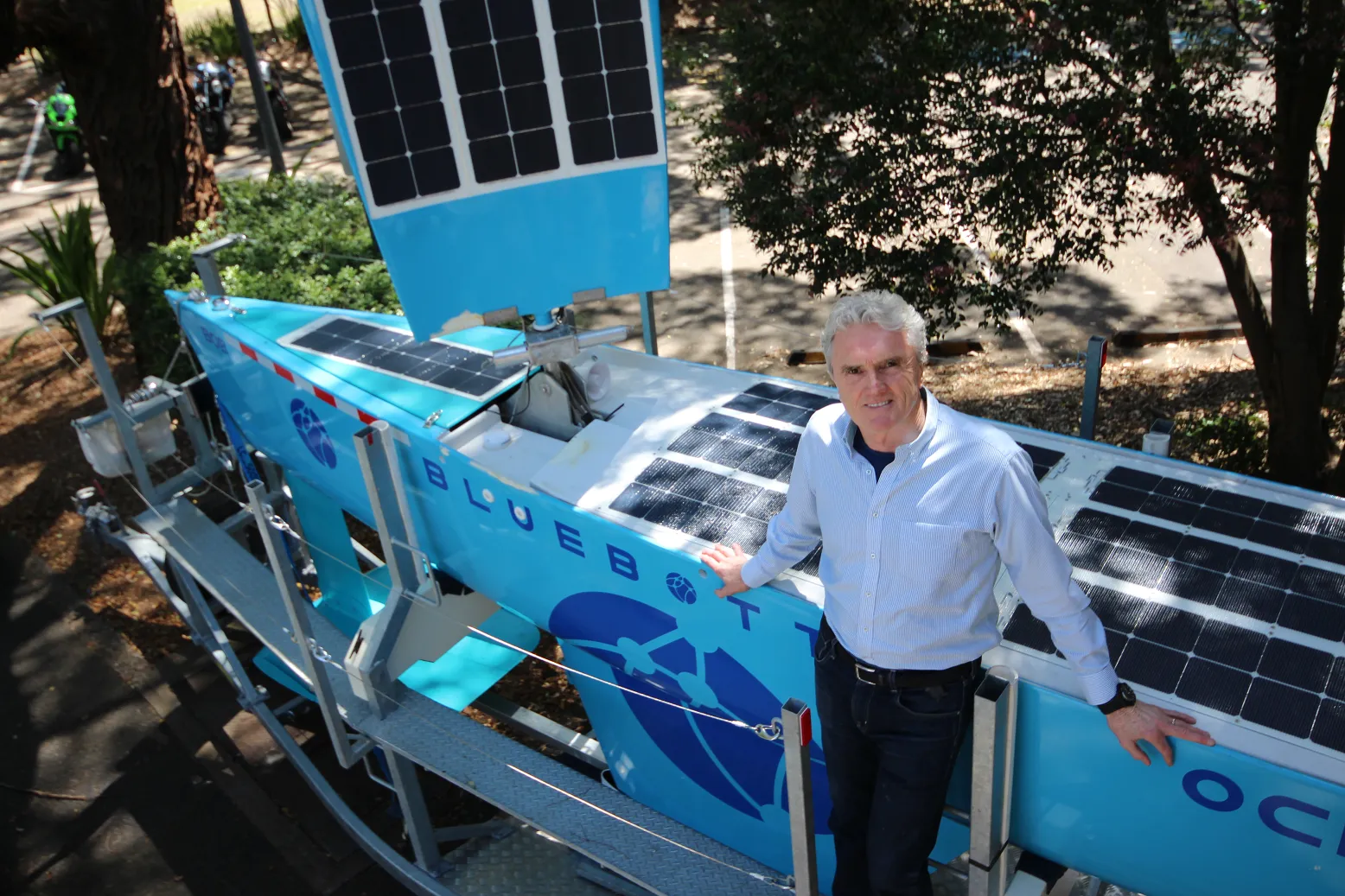We celebrate 60 years of the Spitfire Association and commemorate the founders of the Spitfire Memorial Defence Fellowship. As we look forwards, President of the Spitfire Association, Geoff Zuber spoke with several our Fellows to get their reflections on what the Spitfire Memorial Defence Fellowship means to them and how it helps Australia remain resilient.
Fellow: Dr Robert Dane
Focus area: Unmanned Surface Vessels
Year of Fellowship: 2017
How has the Fellowship supported your research, and what difference has it made?
I was lucky enough to start chatting with Lysle at the Palm Beach Surf Club on Sydney's North Shore, and because of that chat and a demonstration of our concepts at the University, Lysle awarded Ocius a 'step-up scholarship' to create a preliminary design of the sail joint for our first 'Bluebottle' autonomous surface vessel.
The demonstration included the students in the engineering faculty, and it was following this demonstration and Lysle's scholarship funding of $10,000 that led to Ocius being able to ask one of the students to create a professional engineering drawing from my original sketches of the first vessel.
Then we built it and tested it and found it worked and was certainly more efficient than the first concept sail joint.
It was following this successful test, and my application for a full Spitfire Memorial Defence Fellowship, that I was awarded $30,000 to build the winch for our next Bluebottle vessel.
The funding from the Fellowship and the original 'step-up scholarship' enabled Ocius to get Australian engineering students, local engineers, and local marine technology companies to build the components of our first operational Bluebottle autonomous surface vessel.
We built the winch and fitted it to our Bluebottle vessel in Ulladulla, on the NSW South Coast. We attached an array to the vessel with a 10-metre rope to test the winch in oceans conditions. The 'boat' proved to be very quiet and the sensitivity we got from the array was very promising. Subsequently, we got a contract to build five more Bluebottles with a bigger winch and larger arrays.
The Fellowship funding has meant I have been able to turn my ideas into usable and active equipment, which has the potential to contribute to the defence of Australia's massive coastline and keep Australia resilient.
It wasn't just the Fellowship funding that has made the difference to me, and to the Ocius team, it was also the publicity from the presentation of the award at Government House, and all the support provided by the Spitfire Association that made the real difference. The opportunity to meet the former Chief of Defence Force, through the Fellowship, and have him attend our first demonstration at Jervis Bay in 2017 has had a big impact on the Ocius team and our confidence in the capability we are building. The profile we've gained, through the Fellowship, and the networking that has enabled has really raised our profile within Defence.
Overall, meeting the ADFA and Duntroon graduands at Government House has been the inspiration that keeps us working on improving the autonomous monitoring capabilities we are building with each Bluebottle we manufacture. We can see a direct connection between the technology we are developing and how it can help our future Defence leaders in protecting our nation's interests and values.
What advice would you have to potential Fellowship applicants?
I'd say the Spitfire Memorial Defence Fellowship is a good way to get interim funding for small organisations and research projects. It provides the essential funding to turn your ideas into reality and it is a catalyst for creating other opportunities, such as increasing the profile of the research you are doing and the outcomes you are trying to create.
If you could meet the founders of the Fellowship today – AVM Lyndon Compton AO OBE, FLTLT Edward (Ted) Sly DFC and FLTLT Peter Watson DFC, what would you say to them about your experience of the living memorial they established?
I'd give them a warm thanks and show my appreciation of their Fellowship. I'd also say to them, 'what a great thing they have created', and thank them for keeping it simple to apply.
I'd say it's great that you know quickly if you are successful, and that you have the freedom to determine how you will use the funds to further your research. And for that reason, we'd encourage anyone with a great idea to apply.
For those Fellows who met former Spitfire Association President and Life Vice President, Lysle Roberts, what were your memories of him?
I have very fond memories of Lysle and his interest in what we were doing.
I remember, on one occasion, when Lysle gave a brief talk to the students at the University about the Spitfire Association, I noted to the students that at 20-22 years old, they were older than Lysle was went he first flew for his country in World War II.
The students asked many questions, after Lysle gave his talk and these are some of the interactions I remember from that time:
Student, "How much training did you have?"
Lysle, "Pilots today would not believe it, but we only had six months of training before flying into the Dutch East Indies and to battle."
Student, "Did you feel unprepared?"
Lysle, "We couldn't wait."
Student, "Did you feel scared?"
Lysle, "We knew some of us would not be coming back. The night before, the English and the Aussies would have a few beers and say, 'see you after the mission'. The US pilots would not drink, and they'd pray; it didn't seem to make much difference."


